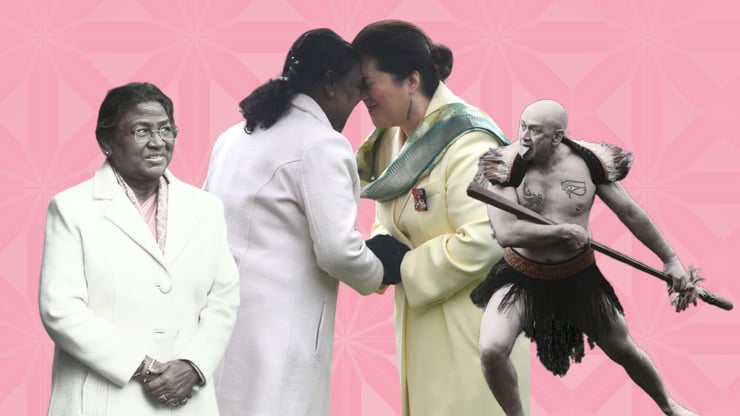Murmu Points To ‘Acceptance Of Indian Students’ In 1st Speech In NZ

President Droupadi Murmu underscored the value Indian students add to New Zealand’s cultural fabric as she called for the two countries to continue to “work together” in the education sector.
She spoke at the New Zealand International Education Conference 2024 in Wellington on August 8 in her first public speech on her ongoing three-day tour to New Zealand.
Murmu pointed to the hefty cohort of Indian students in New Zealand in the lead up to her appeal for continued bilateral cooperation in the sector.
“The acceptance of Indian students by New Zealand institutions not only underlines the value that the Indian students place on receiving New Zealand education, but it also demonstrates the value that Indian students are adding to New Zealand in terms of this country’s economic growth and multicultural fabric,“ she said.
“Both countries therefore need to work together to ensure that this success story continues. This would need regular exchanges between the institutions, experts and regulators of both countries.”
The Indian president arrived in Auckland on the evening of August 7, marking only the second time an Indian head of state has visited the country. The late Pranab Mukherjee was the first to visit Kiwi shores back in 2016.
During her address on Thursday, Murmu recalled her days as a young student in India to highlight the value Indian parents place on education. “I was the first woman from my village to receive a college education,” she recalled fondly.
“Indian parents aspire for the best education for their children…8,000 Indian students are pursuing various courses across New Zeaand, making it the second largest group of international students here. This number continues to grow,” she said.
Murmu took the opportunity to stress the importance of the education sector in diplomatic relations between India and New Zealand.
“Educational exchanges are an important aspect of our bilateral ties…Given the priority attached to education by our two countries it seems natural that we have developed such strong education ties.”
She encouraged stakeholders in both the countries to find innovative ways to continue the educational exchanges.
“We can collaborate to create a pool of young, productive minds who can contribute in various capacities.
“With rapid advancements of technologies, our educational institutions may collaborate in digital education and technology integration, such as artificial intelligence and machine learning, vocational and skill based training, climate and environment studies, cultural exchange programmes, research and innovation,” she said.





